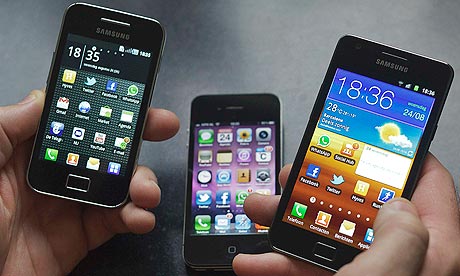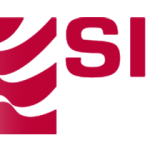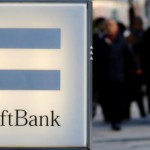Telefonica-KPN Review Said to Focus on Small Operators

The European Commission’s review of the proposed merger of Telefonica SA (TEF) and Royal KPN NV (KPN)’s German wireless units focuses on bolstering smaller competitors that lease capacity rather than attracting a new network operator, according to people familiar with the process.
While Telefonica Deutschland Holding AG (O2D) agreed to hand urban wireless spectrum to a new rival in a bid to win the commission’s assent to the $12 billion deal, regulators aren’t expecting the offer to be taken up, said the people, asking not to be identified because no ruling has been made. The emphasis is on improving conditions to make companies such as United Internet AG and Freenet AG, which lease capacity from network carriers, more competitive, they said.
“Nobody is going to put one euro on the table to start a full-fledged mobile operator with radio and access networks in Germany,” said Torsten Gerpott, a professor at the Mercator School of Management at Duisburg-Essen University. “Either you wave it through and you get three operators, or you let it be. It’s highly unlikely that there will be a new one.”
A merger of Telefonica Deutschland and KPN’s E-Plus would reduce the number of network operators to three from four. Deutsche Telekom AG and Vodafone Group Plc (VOD) are the leaders in the market with more mobile subscriptions than people. An approval of the transaction may trigger more consolidation in Europe’s telecommunications industry.
Irish Case
The lack of a new market entrant would set the German case apart from Ireland, where Hutchison Whampoa Ltd.’s attempt to buy Telefonica’s local unit may be facilitated by Liberty Global Plc (LBTYA) stepping in to offer mobile-phone services in the country. Existing carriers have no interest in having a new separate network because it would mean more competition for airwaves and less revenue relative to infrastructure spending.
Antoine Colombani, a Brussels-based spokesman for the European Commission, declined to comment, as did representatives for Telefonica and E-Plus. The EU has set June 26 as the deadline for its ruling.
Competition Commissioner Joaquin Almunia said in March that he was more concerned with the competitive situation than the number of companies in a market.
Jochen Homann, president of Germany’s Federal Network Agency, which works with the commission on the approval process, said yesterday he doesn’t expect a new infrastructure operator. Reducing the number of network providers is the main argument in favor of the transaction because it would encourage broadband investments, he told Bloomberg News at an industry event in Duisburg, Germany.
Austrian Lessons
The EU wants to avoid an outcome like that of its decision on Hutchison’s purchase of Orange in Austria in 2012, where Hutchison’s offer to cede spectrum to a new rival found no takers and a virtual operator is yet to start a competing service.
Unitymedia KabelBW, the German unit of billionaire John Malone’s Liberty Global, isn’t interested in becoming a network operator in Germany, said one of the people. A Unitymedia representative declined to comment.
Germany differs from Austria and other European countries in that MVNOs, or mobile virtual network operators, have a larger share of the market and command greater pricing power.
Drillisch AG, one of such MVNOs, this week reported its customer numbers grew 15 percent during the first quarter to 1.76 million.
Germany’s Monopoly Commission, an adviser to the German government, this week put pressure on the EU to veto the deal unless Telefonica presents a new entrant. Telefonica would have to hand over a “significant part of business activities” to the new rival, Daniel Zimmer, who heads the panel, told Frankfurter Allgemeine Zeitung.
Price Declines
Any new entrant would have to maintain thousands of wireless transmitters and cables while investing to attract a large customer base.
Mobile-phone bills in Germany are lower than in neighbors including France, the U.K. and the Netherlands. Prices for telecommunications services have continued to slide, falling 1.3 percent in April, compared with a 1.3 percent gain in consumer prices, Germany’s Federal Statistics Office said.
Shares Climb
Drillisch rose as much as 1.4 percent, United Internet added as much as 1.8 percent, and Freenet gained as much as 1.2 percent in Frankfurt. Telefonica Deutschland climbed 0.2 percent, while KPN rose 0.5 percent in Amsterdam.
In France, where three providers had split the market for years, regulators encouraged the creation of a fourth network operator. Iliad SA, which started discount mobile services in 2012, helped drive prices down by about 30 percent. That trend has led regulators to increasingly move away from favoring price competition to encouraging network spending.
The GSMA industry association, representing almost 800 operators across the globe, called on Brussels last week to avoid remedies that would retain what it called “duplicate” network infrastructures. German rivals of Telefonica also weighed in.
“The remedies imposed on any deal should not kill the economic logic and the synergies of such a deal,” Deutsche Telekom Chief Executive Officer Timotheus Hoettges said last week. In-market consolidation is essential to make investments possible in the future, he said, adding that “it would be better to walk away from such a deal otherwise.”
Source: bloomberg





























